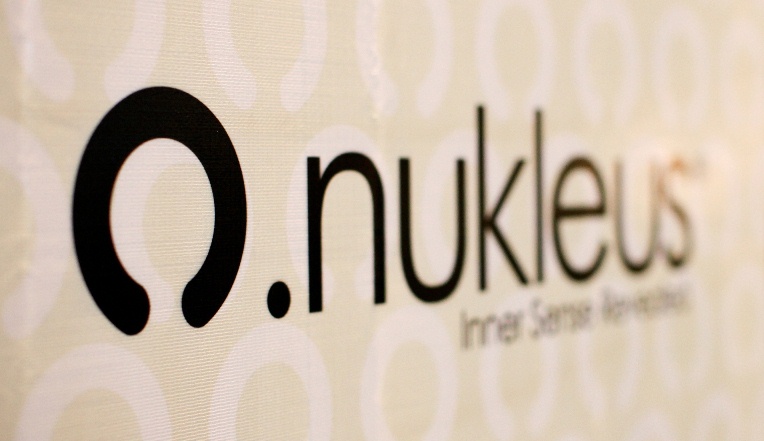Nukleus
CEO CW Tan opens his heart on the learnings and challenges that come
with growing a sustainable brand.
“At
the beginning even we didn’t fully understand how to deal with a
sustainable brand,” he admits. “Our idea was just to use organic
cotton and then give some money away to charities like
WWF(Worldwide Fund for Nature).
It was fairly shallow.”
But
a meeting with WWF
Malaysia
changed that. WWF Malaysia
explained the principles of sustainability: that it was an end to end
process, from conceptualising the product, sourcing the materials,
manufacturing, packaging, transportation and
product disposal. “Every part of the value chain has
implications for the environment, and that’s what we attempt to
address with Nukleus,” observes Tan.
Following
the meeting with WWF Malaysia,
which happened just before Nukleus was due to launch, and with his
head spinning with new concepts like ‘end to end’ and ‘cradle
to grave’ sustainability, CW went back to the drawing board.
“We
decided to make an effort to understand all the environmental
implications along the value chain. We delayed the launch by nine
months because we’d decided to do it the right way,” he recalls.
CW’s
journey of understanding sustainability was mirrored in Nukleus.
Everything from selecting materials to production, had environmental
implications. Nukleus is guided by the Global Sustainability Criteria laid down by WWF worldwide.
“We’re not 100% but we’re close. For example, we’re organic
but not Fairtrade certified, because of the cost for getting
Fairtrade auditing...”
 CW
sees his brand’s journey to sustainability as one of continuous
learning and improvement. “We’re not perfect, but we’re
committed. We comply with Oeko-tex Standard
100 because it has the highest standard for human
ecological safety for many processes. All our
components comply with this, from fabric dyeing, to the elastic, to
the labels. All the issues that are raised in the Greenpeace report,
Toxic Threads...if brands adhered to this standard, the
toxicity problems would not be an issue. ”
CW
sees his brand’s journey to sustainability as one of continuous
learning and improvement. “We’re not perfect, but we’re
committed. We comply with Oeko-tex Standard
100 because it has the highest standard for human
ecological safety for many processes. All our
components comply with this, from fabric dyeing, to the elastic, to
the labels. All the issues that are raised in the Greenpeace report,
Toxic Threads...if brands adhered to this standard, the
toxicity problems would not be an issue. ”
He
cites the SGS test report carried out by an independent Taiwanese
test centre, which has audited Nukleus products in
order to demonstrate in a transparent and non-partisan way, that the
claims made about the products, are, in fact true. “One
of the main issues is azo dyes, and Greenpeace is
highlighting that.”
 “Our
packaging is Forest
Stewardship Council (FSC) certified, the highest global
standard for responsible
forest management, which, among
others, takes into account whether the tree cutting is
harming the environment, biodiversity, what kind of chemicals are
used. It’s a German standard and very stringent, universally
accepted as the gold standard.”
“Our
packaging is Forest
Stewardship Council (FSC) certified, the highest global
standard for responsible
forest management, which, among
others, takes into account whether the tree cutting is
harming the environment, biodiversity, what kind of chemicals are
used. It’s a German standard and very stringent, universally
accepted as the gold standard.”
All
the printing on the boxes is done with soya ink, so the packaging is
free of volatile organic compounds (VOCs), which produce fumes
detrimental for health and which also contribute to ozone depletion.
“There’s
still more that we can do,” observes Tan, “like transportation
and the carbon footprint. The key is to be honest. We’re not
perfect. We’re learning all the time, but we are committed. I guess
that’s the main difference between us and other players. We apply
the sustainability concept as an end to end process. It’s a
lifecycle process to create a truly
green and sustainable brand.”


I am inspired by your work and dedication to the sustainable cause. I wish you and your team every success, CEO CW Tan!
ReplyDeleteThank you for your words of encouragement, Sharon.
ReplyDeleteThis was really a cordial post. Thanks a lot!. Natural Sleep guide eco friendly mattresses by Natural Mattress Matters https://www.naturalmattressmatters.com/natural-sleep-guide-eco-friendly-mattresses/
ReplyDelete